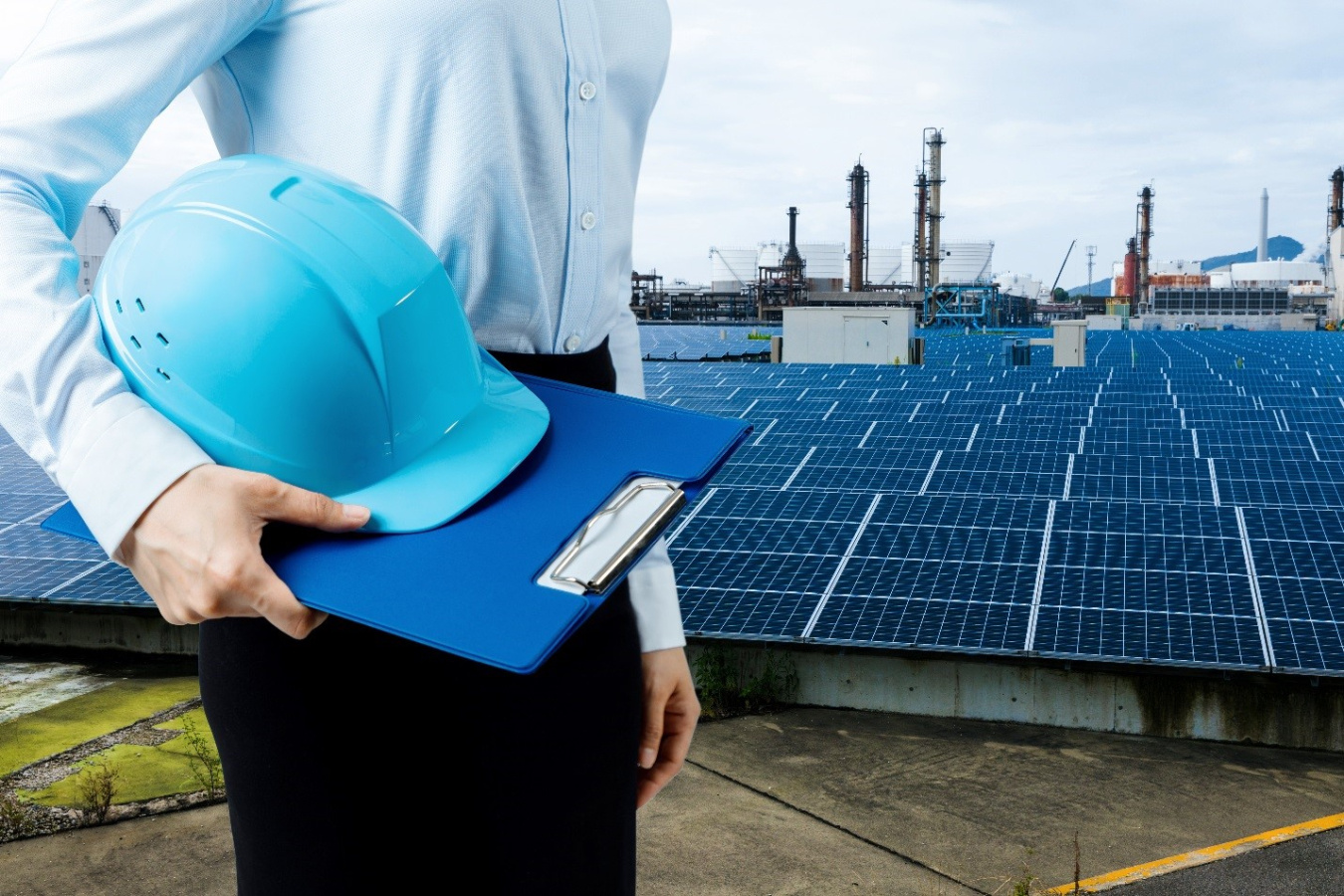With financial support from DOE, the state-led coalition worked to advance the southeastern clean-energy market in three phases.
March 4, 2020
Clean Energy Manufacturing—stock photo by Getty Images 2019
Four southeastern states – North Carolina, South Carolina, Virginia, and Georgia – worked with local nonprofits to support and advance clean energy market opportunities in the Southeast by developing a collaborative energy roadmap. The state-specific energy technology roadmaps capture key energy assets and opportunities for each state, while identifying strategies to collaborate on positioning the Southeast to support regional economic development opportunities and bolster nationwide clean-energy benefits.
With financial support from the U.S. Department of Energy's State Energy Program, within the Office of Energy Efficiency and Renewable Energy, the North Carolina-led coalition worked to advance the southeastern clean-energy market in three phases: 1) industry measurement; 2) regional and community forums; and 3) roadmap development.
During the project period, the coalition led several community forums and state dialogues to assess stakeholder priorities and gain a deeper understanding of the clean energy industry baseline the coalition was working to improve. Roadmaps were developed for each state that take into account state energy plans and programs in North Carolina, Virginia, South Carolina, and Georgia. The roadmaps cover energy clusters, key emerging industries, utility renewable energy initiatives, and research and development.
Each year, the North Carolina Sustainable Energy Association conducts a census of the clean energy industry in the region. The census develops a baseline from which progress can be mapped and measured. The baseline census from 2015 identified more than 2,500 clean energy firms and almost 70,000 full-time, clean energy jobs across the four participating states. To further grow this industry in the Southeast, five key strategies were identified by the roadmaps:
- Build a skilled workforce
- Strengthen infrastructure
- Improve the business climate
- Increase market demand
- Strengthen business support
Each state’s roadmap examined clean-energy assets, opportunities, and challenges in the four southeastern states. Each roadmap presents a path for policymakers and industry to grow different clean energy technology sectors. The states also collaborated to create a set of common priorities for economic development and clean energy that are relevant across the Southeast.
According to one North Carolina official, “The findings of the roadmap project were useful in the development of North Carolina’s 2019 Clean Energy Plan, which involved several of the same stakeholders and set key goals to transition the state to a clean-energy economy.”
DOE’s State Energy Program provides funding and technical assistance to states, territories, and the District of Columbia to enhance energy security, advance state-led energy initiatives, and maximize the benefits of decreasing energy waste. The State Energy Program emphasizes the state’s role as the decision maker and administrator for program activities within the state that are tailored to their unique resources, delivery capacity, and energy goals.

